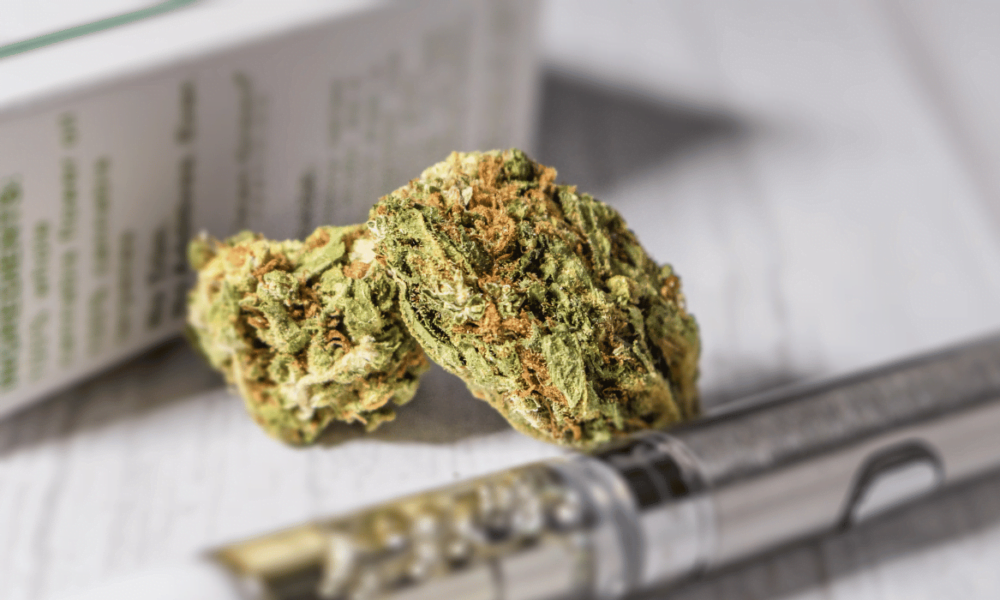Luxembourg is set to restrict access to high-THC cannabis flower on prescription from next year, as part of longer term plans to phase out flower-based products altogether.
As of January 2025, patients in Luxembourg will no longer be able to access cannabis flower containing high levels of THC on prescription, according to the country’s Health Minister.
There are also reports of plans to restrict access to high-CBD cannabis flower in the future, leaving only oils and other formats of cannabis-based medications available for therapeutic use.
A law allowing personal possession of non-medical cannabis and the cultivation of up to four plants per household for personal consumption approved in June 2023 will not be affected by the proposals.
Medical cannabis has been legal in Luxembourg under strict regulations since 2018 and is currently prescribed for advanced or terminal chronic conditions causing severe and untreatable pain, chemotherapy-induced nausea or vomiting as part of cancer treatment and muscle spasticity associated with multiple sclerosis.
Health Minister, Martine Deprez, has now supported a proposal by the Pharmacy Division of the Health Directorate to restrict access to flower on prescription.
The decision comes following a 2022 report which found some evidence of the prescription process being abused, while Deprez has also highlighted concerns about the lack of evidence supporting cannabis flower treatments and the challenges of standardised dosing with this delivery method.
“A significant consumption of cannabis can constitute great dangers. In addition, no medical conclusion proves the effectiveness of this treatment. The dosage and administration are also difficult,” the Christian Social Minister said in parliament on Wednesday 13 November, as reported by Le Quotidien.
“We have reconnected with all the stakeholders concerned and decided to launch a transition phase in 2025.”
The transition phase will reportedly allow officials to assess the need and adapt the program if necessary.
Luxembourg officials are said to be following the example of France, which is expected to prohibit flower on prescription when it rolls out general legalization of medical cannabis in the coming year. Meanwhile Spain’s draft decree for the regulation of medical cannabis also excludes flower.
The move has received criticism from Luxembourg’s Déi Gréng party MP, Djuna Bernard, who described it as a “striking step backwards” that “calls into question all the achievements in terms of policies related to the legalization of cannabis”.
Former Minister of Health Paulette Lenert (LSAP), with the support of former Minister of Justice Sam Tanson (déi gréng), had taken several steps towards the legalization of cannabis in Luxembourg.
Patients need more choices, not less
Patient representatives have also expressed concern about the proposals, saying any potential abuse of the system is “outweighed by the benefits to patients”.
The Patient Council of the International Association of Cannabinoid Medicine (IACM) described it as a “huge blow” for those living with chronic pain and other complex conditions who benefit from the fast-acting effects of inhalation.
A spokesperson said: “Cannabis flower makes it possible for people to use a vaporizer when administering cannabinoids, which is the most immediate form of consumption, meaning that relief can be achieved in moments compared to the long action time associated with other forms of consumption, such as oils or edibles. This is a huge blow for any patient that finds the convenience of inhalation preferable, whether they are supplementing oils and other methods or whether it is being used on its own.”
They have also pointed out that cannabis is a personalised treatment, with patients requiring varying levels of CBD and THC to treat their symptoms effectively.
“Any limitation on levels of cannabinoids is to the detriment of patients,” they continued.
“Some patients need very high levels of THC- others very high levels of CBD. Most need a combination of both, not to mention the other cannabinoids and terpenes that are found in the plant. Any medical professional who has experience in cannabinoid medicine will tell you that no two patients are alike – the maximum amount of flexibility in the system will always offer the most promising results. We need more choices, not less. More freedom, fewer restrictions.”

